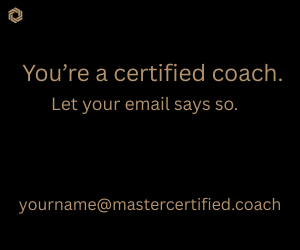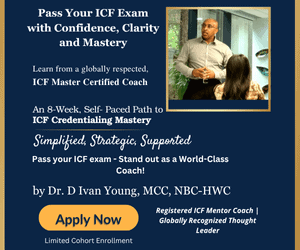A successful senior leader, struggling in a new reporting relationship, turned to a peer for help. She voiced a desire to work with an external coach. The peer’s response was, “You don’t want to do that now. It will be seen as a sign of weakness.” I could hear disappointment in the senior leader’s voice as she recounted the interaction to me. Asking for help and working with a coach signaled weakness to her peer.
Words matter. What her peer called weakness was actually vulnerability – opening up to someone and trusting them with information that could conceivably be used against you. In this case, that information was, “I am struggling in this new working relationship. A coach could help me.” She got an honest yet discouraging response, reflecting how that action could be perceived in the organization.
Looking beyond this particular organization, a question arises from the interaction: is vulnerability a sign of weakness (the condition of lacking strength)? No. Rather than weakness, vulnerability is a display of strength and courage. Coming from a leader, vulnerability feeds several improvements that organizations look for and need, especially post-pandemic.
Let’s explore a few of these improvements and how a coach can help.
1. Vulnerability is healthy
Until we voice something, it is hard to act on it. Alexander Maclaren, a Scottish Baptist minister of the nineteenth and early twentieth century said, “A thought, be it good or bad, can be dealt with when it is made articulate.” You know the moment — when a coaching client says, “I’ve never said that out loud before.” The client has transitioned from internalized to acknowledged. Now they can figure out if and how they want to act on it, in a way that is healthiest for them.
2. Vulnerability is authentic
We are bombarded with messages about the importance of authenticity for leaders. Too often, though, organizations have a culture where it is seen as weakness to acknowledge you need help, let alone to ask for help, especially the higher your name appears on the org chart. But you cannot be authentic if you are not vulnerable. Acting like you have it all together all the time is not authentic.
Others can often distinguish an inauthentic leader. We know what it is like to follow an authentic leader versus what it is like to have an inauthentic leader. Notice I did not say “follow the inauthentic leader.”
Just as importantly, we often have a sense of when we are not authentic, when we are holding something back. Vulnerability is a scary, yet authentic action. The hold-up should not be whether or not to be vulnerable. The better question is, “With whom can I be vulnerable?” This is where a coach, particularly an external coach, can help. A coach creates a space where vulnerability is welcomed with no judgment.
3. Vulnerability reflects confidence
Rather than weakness, vulnerability reflects a level of confidence. Strong leaders are not afraid to acknowledge problems or hurdles. They encourage their teams to do the same, knowing that bad news does not age well. If they need help, they get help, because the point is to solve the problem. Still, doing so can be organizationally counter-cultural. As coaches, we can help our clients recognize that vulnerability is a confident action that helps solve problems and deliver results.
4. Vulnerability opens doors
Vulnerability opens doors, for the individual and for others. For the individual, vulnerability goes under the surface and honors self-reflection, which opens the door to real change.
When team members see vulnerability from a leader, it opens doors for them. Vulnerability from a leader knocks down a door to leadership. It helps aspiring leaders see that learning and growth is part of being a leader and that they do not need to have everything in place to step into leadership.
Vulnerability may also open the door to innovation. A recent Catalyst survey as discussed in a Forbes article showed the positive impacts of an empathetic leader on individuals and teams, including a higher ability to be innovative.1 Vulnerability from the leader opens the door for team members to share more fully and freely. They can follow the leader’s example and be vulnerable. They might also reasonably expect that a leader who is vulnerable will also be empathetic. When they see empathy from the leader, they can be more innovative.
Vulnerability Reevaluated
Many things in our world have been flipped in the last year and a half thanks to the pandemic. We need more vulnerability now, especially from leaders. The much-written-about authentic leader has to be vulnerable. This is a space where we as coaches can help our clients. Let’s help them reevaluate vulnerability and see it for what it is – courageous and healthy, not weak. Let’s help them open the door to vulnerability, for themselves and for others, on the way to a confident authenticity.
Disclaimer
The views and opinions expressed in guest posts featured on this blog are those of the author and do not necessarily reflect the opinions and views of the International Coach Federation (ICF). The publication of a guest post on the ICF Blog does not equate to an ICF endorsement or guarantee of the products or services provided by the author.
Additionally, for the purpose of full disclosure and as a disclaimer of liability, this content was possibly generated using the assistance of an AI program. Its contents, either in whole or in part, have been reviewed and revised by a human. Nevertheless, the reader/user is responsible for verifying the information presented and should not rely upon this article or post as providing any specific professional advice or counsel. Its contents are provided “as is,” and ICF makes no representations or warranties as to its accuracy or completeness and to the fullest extent permitted by applicable law specifically disclaims any and all liability for any damages or injuries resulting from use of or reliance thereupon.
Authors
Post Type
Blog
Audience Type
Coach Educators, Experienced Coaches, External Coaches, ICF Chapter Leaders, Internal Coaches, New Coaches, Professional Coaches, Team and Group Coaches
Topic
Advance Your Coaching Career, Discover - Your Coaching Career
Related Posts
How Coaching Is Driving Inclusion Around the Globe: Lessons from Local ICF Chapters
When a group of mothers in Kazakhstan, many of whom had never…
Belonging Beyond Numbers: How ICF Demographic Trends Are Shaping the Future of Coaching
What does it really mean to belong? For the International Coaching Federation…
Professional Coaching Relationships That Work: Respect, Boundaries, and the Art of Mutuality
This post comes from Dr. D. Ivan Young, an ICF Business Solutions…








